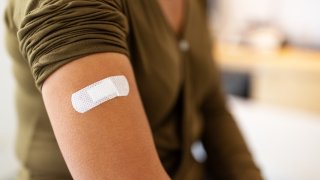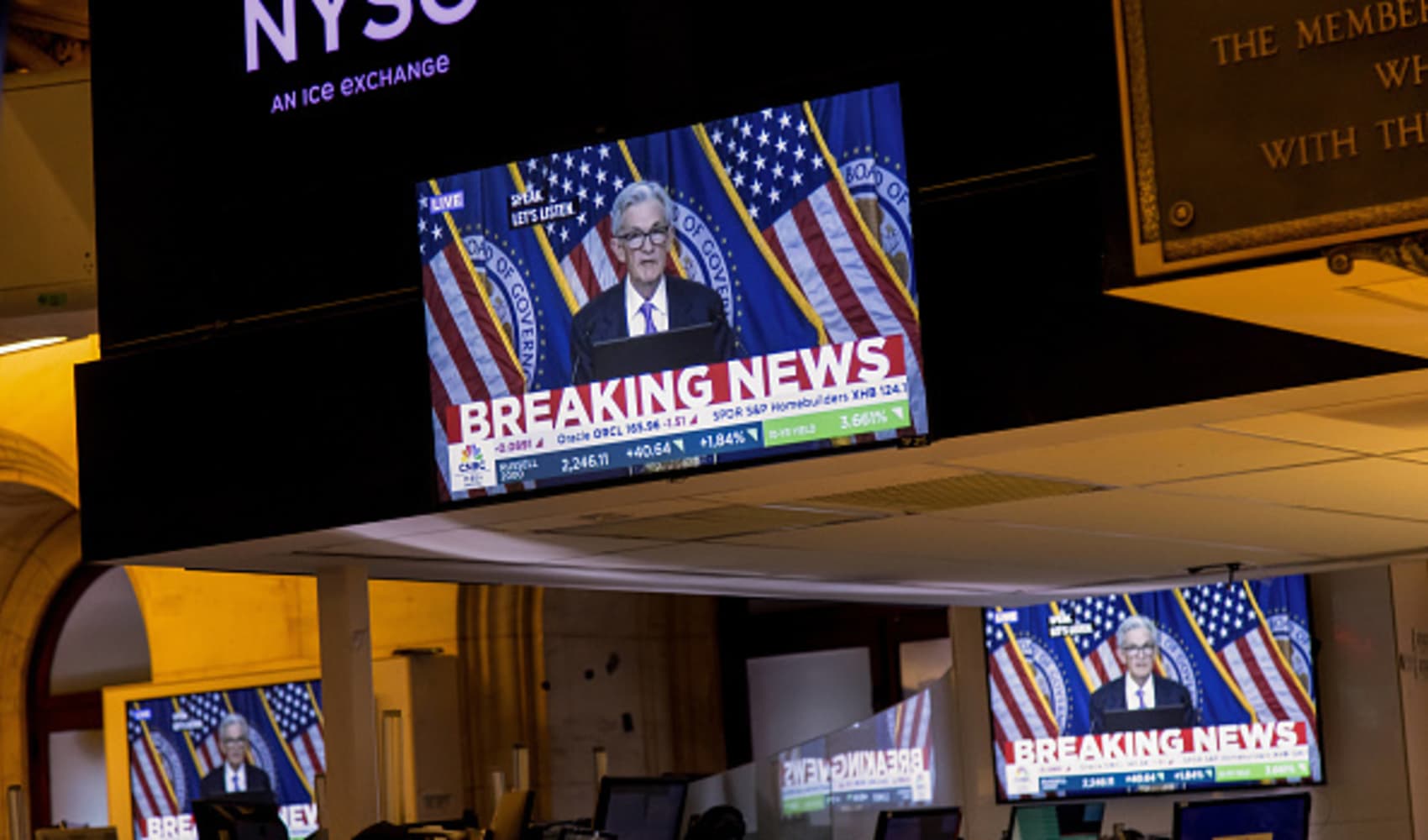
You've probably heard a lot about booster shots in recent weeks. But nobody can agree on when you'll actually need to get one.
On Wednesday, Pfizer submitted data to the Food and Drug Administration making a case for booster shots: A third dose of the mRNA vaccine six months after a second shot restores protection from infection to 95%, according to the study's real-world data from Israel. The report noted that the two-dose regimen's Covid protection for recipients wanes over time, dropping below 84% just four months after the second dose.
This new data is meant to brief the FDA's vaccine advisory committee ahead of a Friday meeting about boosters. The committee is expected to review the findings and decide who needs boosters, at what dosage and when. To an extent, the data is unsurprising: Vaccine-induced protection typically wanes over time, and the vaccines still provide effective protection against hospitalization and death from Covid, even six months later.
At this stage, the FDA's stance is undecided. "FDA has not independently reviewed or verified the underlying data or their conclusions," the agency wrote in a document published Wednesday. Ultimately, the FDA and the Centers for Disease Control and Prevention will determine which shots to give, when and to whom, according to a speech given by President Joe Biden at the White House last week.
Originally, top U.S. health officials announced that booster shots would be ready for distribution to all eligible Americans beginning the week of Sept. 20, starting eight months after their second dose of Pfizer or Moderna's vaccine.
But on Monday, an expert review of scientific literature published in the medical journal The Lancet determined that boosters are not needed in the general population, because the vaccines are still highly effective at preventing severe illness and death, even against the delta variant.
Widely distributing boosters is "not appropriate," the authors, including two senior FDA officials and multiple scientists from the World Health Organization, wrote.
Money Report
So, what will happen on Friday and will you ever need to get a booster shot? Here's what the experts say:
Will I need a booster, ever?
Get a weekly recap of the latest San Francisco Bay Area housing news. Sign up for NBC Bay Area’s Housing Deconstructed newsletter.
Right now, the likelihood that you'll need a Covid booster shot depends on your own personal health and which vaccine you got first. Recipients of the Johnson & Johnson one-shot vaccine, for example, might be more likely to need an additional shot than anyone who got Pfizer or Moderna.
Evidence also suggests that a third dose of the mRNA vaccines will be helpful for people with suppressed immune systems, like organ transplant recipients or cancer patients. Those immune systems may not get an adequate enough response from two doses, Dr. Sadiya Khan, assistant professor of medicine at Northwestern University Feinberg School of Medicine, tells CNBC Make It.
Fully vaccinated people without underlying conditions are another story, particularly if they received an mRNA vaccine. People with "adequate" immune responses — meaning the vaccines still successfully help prevent severe illness, hospitalization and death, regardless of any waning protection percentage — probably don't need a third dose right now, Khan says.
Indeed, she notes, a third shot could actually be more harmful than helpful. "There may be harm for getting a third dose too soon," Kahn says, such as myocarditis or inflammation of the heart, as well as thrombosis or blood clots.
That calculus could eventually change, according to the Lancet paper, which noted that the general population could need a third dose if vaccine-induced immunity wanes even further, or if a new variant emerges that more effectively evades vaccine protection.
On Friday, the CDC released a report showing that even though vaccine-induced protection wanes over time, it still holds up against hospitalization and death.
What does the timeline look like?
Figuring out a realistic timeline for booster distribution is complicated. Dr. Anthony Fauci, the White House chief medical advisor, said that it's "conceivable" that Pfizer's boosters will be out by the end of the month, with others following soon after, during an interview with CBS' "Face the Nation" Sept. 5.
But even if boosters are available by October, the optimal timeline for you to get your additional shot is still unclear. The Biden administration's plan to give people boosters eight months after their second dose is "a somewhat arbitrary timeline," says Dr. William Moss, executive director of the International Vaccine Access Center at the Johns Hopkins Bloomberg School of Public Health.
Booster timelines are currently determined using available metrics like antibody levels and other lab markers, Kahn says, adding that more research is needed to figure out exactly what the optimal time range would be to administer the shots.
Once boosters are available, Moss says, the "highest priority" should go to older adults and healthcare workers who are exposed to the virus. If you don't fall into either of those categories, he says, you should wait — because vaccine manufacturers are working on next-generation vaccines that specifically target Covid's delta variant.
What does all of this mean for ending the pandemic?
The country's booster shot conversations overlook a more dire fact: Much of the rest of the world still needs to get one dose of a Covid vaccine.
On Wednesday, the World Health Organization called for a moratorium on Covid boosters until the end of the year, stating that the vaccination rates in low-income countries need to improve before anyone should dole out boosters.
The reason: Any such "immunity gaps" allow the virus to spread and mutate into more contagious variants, which just prolongs the pandemic further, says Dr. Jon Andrus, adjunct professor of global health at the Milken Institute School of Public Health at the George Washington University.
According to the authors of the Lancet paper, "even if some gain can ultimately be obtained from boosting, it will not outweigh the benefits of providing initial protection to the unvaccinated." Distributing vaccines "where they would do the most good" is critical to ending the pandemic, the authors wrote.
Khan and Andrus both say they agree. "If we remain focused only in our own country, we'll be totally missing the opportunity to mitigate the risk of future variants coming into our country," Andrus says.
Update: This story has been updated to include new data submitted by Pfizer to the FDA.
Sign up now: Get smarter about your money and career with our weekly newsletter
Don't miss:






